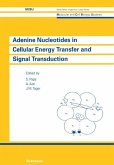The nutrient and energy sensor AMP-activated protein Kinase regulates cellular and whole-body energy homeostasis through stimulating catabolic ATP-generating and suppressing anabolic ATP-consuming pathways thereby helping cells survive during energy starvation. AMPK plays an important role in autophagy induction in response to starvation, a process that involves phosphorylating TSC2 and mTOR activation. Recent advances indicate the kinase also to exert tumor suppressor activity by stimulating apoptosis, autophagy and cell growth and proliferation. AMPK can be used to protect from metabolic syndrome. This kinase has previously been demonstrated to be either directly or indirectly involved in the regulation of numerous carriers, channels and pumps of high relevance for cellular physiology and pathophysiology. Thus, AMPK provides a necessary link between cellular energy metabolism and cellular transport activity. Better understanding of the AMPK role in the regulation of cell transport under physiological and pathological conditions may represent a potential for developing therapies for many human diseases and disorders, especially cancers.
Bitte wählen Sie Ihr Anliegen aus.
Rechnungen
Retourenschein anfordern
Bestellstatus
Storno








